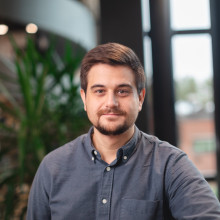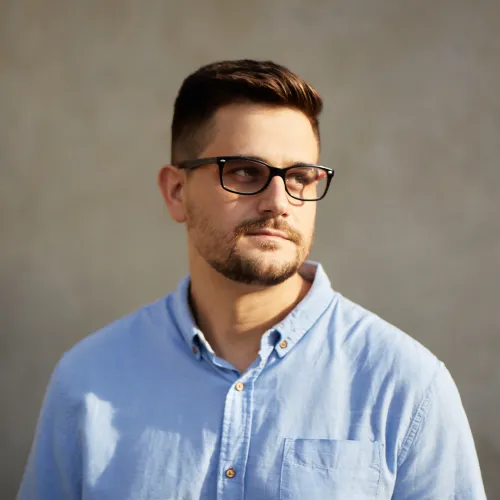Which subjects in social sciences are particularly topical right now?
The intricate social dimensions of technological development, growing inequalities, and the climate crisis are highly pertinent today – as they should be. Interestingly, these issues intertwine and interact with each other, evolving in unforeseen directions. They are deeply connected with shifting ideological landscapes, political conflicts, structural economic changes, and geopolitics. Indeed, societal challenges are incredibly complex. These are the challenges we confront daily at LUT’s Department of Social Sciences.
What are you working with currently?
I am currently working on projects that delve into the social and economic dimensions of big data and AI. These include examining regulations and government support for AI development, as well as exploring new data markets for official statistics.
Additionally, I am investigating the AI penetration in financial markets and its impacts on digital finance. In these endeavors, I am paying particular attention to Latin American contexts, which can bring fresh perspectives to the conversation.

How did you end up leading an academic career?
My journey to an academic career was quite an adventure. I transitioned from professional journalism and press advisory roles to political organizing before finally entering the academic world.
During my master’s studies, I became passionate about sociology and political economy. I realized that the skills I excelled at – investigating, writing, mobilizing, and engaging in informed discussions – aligned well with the demands of an academic path.
What things do you enjoy most about your job? And what things would you like to change?
The most rewarding aspect of academic life is the opportunity for continuous learning and discovering new perspectives on various subjects. This links directly to our core intellectual activities, such as critical thinking, idea exchange, research, and engaging in meaningful societal dialogues. I am deeply passionate about all of this, and the conditions for pursuing this work at LUT are noteworthy.
If there is one thing to change, I would highlight the peculiar blend of cutthroat individual competition, hollow entrepreneurialism, and the bureaucratic overload that seems pervasive across universities worldwide. In my view, this undermines the essential purpose of nurturing meaningful intellectual and scientific exploration.
What is your greatest career accomplishment so far?
Undoubtedly, becoming a Social Sciences associate professor at LUT and participating in the establishment of its dynamic new department has been a significant milestone.
The department is designed to address imminent societal changes through a multidisciplinary, multidimensional, and systemic approach – a vision I’ve wholeheartedly embraced since the outset of my academic journey. Such a rare and innovative orientation within a social sciences department genuinely excites me, sparking anticipation for the possibilities that lie ahead.
If anything was possible, what would you like to study, and what kind of ambitions do you have for your career?
If I could pursue any avenue, particularly at this moment, I would immerse myself in the political and economic history of Finland and the Nordic countries. Furthermore, I would dedicate time to learning Finnish. While English suffices for academic pursuits, mastering Finnish would significantly enrich my interactions with students, colleagues, and the broader Finnish intellectual community.
As for my career ambitions, like many dedicated peers, I aspire to make a substantial and meaningful contribution to my field of expertise and, by extension, to society at large. In my case, this entails contributing to a fresh critical understanding of the digital transformation of the economy and society.
Who or what inspired you last?
Lately, I’ve been captivated by the Cybersin project. This was a cybernetic informational management system envisioned during the 1970s under Salvador Allende’s government – often referred to as ‘the internet before the internet’, as some have broadly defined it. It was a collaboration between young Chilean engineers and Stafford Beer, a British management consultant and cybernetician. This project exemplifies the intriguing interplay between technology, politics, technocracy, and utopian ideals.
There’s a growing body of insightful scholarship on the subject. To my delight, Evgeny Morozov has just launched a podcast series named ‘Santiago Boys’, featuring fresh and exclusive insights and stories about Cybersin. It’s an extraordinary feat of historical recovery that contributes to reshaping ongoing discussions regarding society and technology – such as the impacts of artificial intelligence, the global semiconductor dispute, and the intricate relationship between governments and technology companies in the Global South.
How do you balance your work and personal life? How do you recover from work?
I must admit that I’m not particularly skilled at this. Some of the best ideas I’ve had for papers have come to me while I was running. Engaging in exercise, running, and bicycling are certainly relaxing activities, but they also seem to unlock a suppressed, perhaps unconscious, compartment of my thinking – something I’ve come to enjoy.
As I strive to find a balance between these sometimes-conflicting aspects of life, fortunately, my wife and son play a role in keeping me on track. Spending light-hearted moments with them is wonderful, particularly engaging in outdoor activities and exploring the captivating Finnish nature along the shores of Lake Saimaa that we’re becoming familiar with. Finally, whenever the opportunity arises, reading compelling pieces of literature, listening to music, and watching movies are all part of the lineup.
Tell us something about yourself that others may not know.
Given my Brazilian background, it’s easy for people to assume that I have a strong affinity for football and dreamed of becoming a footballer as a child. However, what they might not realize is that I also play the guitar and harmonica (sometimes simultaneously) and have a genuine love for old classical Blues songs. Additionally, I had a rock ‘n’ roll band during my youth.
More information:





